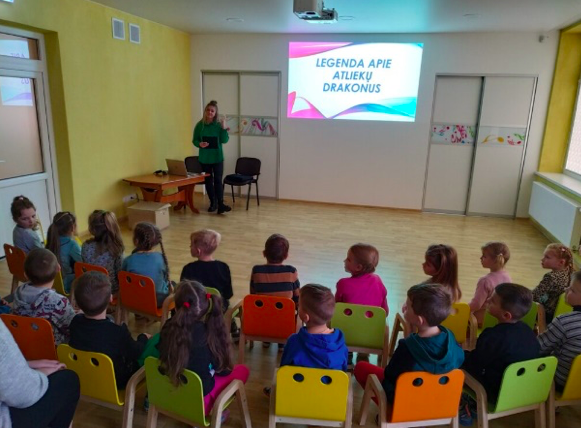Among the key activities at the Circular Based Waste Management project, is knowledge sharing and raising awareness on circular based practices. Throughout the project, partners have been examining case studies, hearing from experts and visiting sites in Norway and throughout Europe, where circular practices are followed in waste management.
The EU recognises that climate change and environmental degradation pose an existential threat to Europe and the world. The European Green Deal and the Circular Economy Action Plan, aim to tackle these issues while transforming the EU into a modern, resource-efficient and competitive economy.
A recurring lesson throughout our project has been that the growing significance of the circular economy is set to bring about notable changes in the types of jobs and skillsets required.
According to a recent study by Circle Economy, there will be a heightened focus on transversal skills – labelled as “broad skills”, including digital and green literacy and problem-solving abilities, alongside the development of “deep skills” that are more closely tied to specific functions or disciplines.
For a circular economy to work, it requires both manual and practical labour in activities involving sorting, cleaning, material recovery, repair and maintenance, as well as highly skilled work for the design and engineering of solutions for most efficient material recovery as well as increasing product longevity. It therefore offers opportunities for work across the full spectrum of labour.
Circle Economy divides circular economy jobs into three types: core, enabling and indirectly circular. Core jobs, are at the centre of a circular economy and work directly with repair, renewable energy, waste and resource management. Enabling jobs help accelerate upscaling of core circular activities and remove barriers. Such jobs include design, rethinking of business models, digital technologies, procurement, research and teaching. Indirect circular jobs are in other sectors that although do not play a direct role, adopt circular strategies. These include jobs that provide services to core circular strategies such as the public sector and information and logistics services.
At the UNESCO World Conference on Education for Sustainable Development that was held in May 2021, the Berlin Declaration on Education for Sustainable Development was adopted by its participants. UNESCO aims through Education for Sustainable Development (ESD), to equip learners with the knowledge, skills, values and attitudes that are needed to contribute to sustainable development and the circular economy.
The conference highlighted that in order to develop circular skills, circular mindsets must be nurtured already in schools and to achieve this, investments are required for suitable training material, teacher training and resource development. Furthermore, it is crucial to include the topic of sustainability in vocational education, higher education and training in companies.
Nurturing circular mindsets has been a main activity within the Circular Based Waste Management project. Partners have been working closely with local populations in their municipalities and particularly with schools creating activities involving children and teachers that aim to teach about circular practices in waste sorting in a practical manner. Details on activities can be found on the news section of the project website.
One example of these, includes a creative competition where children and youth were invited to submit drawings and videos on the theme “Let’s keep out City clean!” which led up to a transnational round where citizens were invited to vote online for their favourite works submitted.
A notable activity by Paide Town Government, our partner from Estonia, was arranging for a cooperation between TalTech University and Paide Gymnasium, where gymnasium students took part in a course on Circular Economy. The gymnasium students worked in the labs with scientists and university students to create sustainable materials out of waste.
Our partners from Mažeikiai District Municipality and Telšiai Region Centre for Waste Management, Lithuania, have been organising a range of events and lectures around the topic of waste sorting where children and youth have been learning and afterwards applying practically their knowledge on waste sorting through games. More recently, Mažeikiai District Municipality arranged for a group of teachers to travel to Norway to learn about organization of bulk waste collection, sorting, handling and reuse of items, the involvement of schoolchildren and the importance of education in the waste management system.
In another example, our partner from Ukraine, the Department of Infrastructure of Sumy City Council organized a lecture-discussion “ZeroWaste Lifestyle” for students of Sumy city universities.
The above activities are all stepping stones towards developing circular economy thinking in the local populations, youth and children of the municipalities we are working with. They aim to do so by engaging them directly and practically in circular based waste management practices that they can both apply in their daily lives but also shape their thinking for the future.
Maritsa Kissamitaki – Circular Based Waste Management Project
www.circular-waste.eu


